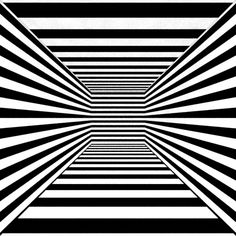|
LITR 4368 Literature of the Future |
Sample answers
for Essay 2:
|
 |
Kerisha Loctor
The Butterfly Effect
The present is affected by decisions made and events that occurred in the
past. The future works the same. Decisions made in the present and events that
occur now can alter the future. Even the smallest of changes can alter the
future. This is called the “butterfly effect”. The butterfly effect is commonly
found in popular culture as it is a fascinating concept. The butterfly effect is
usually discussed in a hypothetical context, but is it not reasonable to believe
that it is possible? Couldn’t a small mistake in the past not affect the future
radically? However, according to journalist Peter Dizikes, this is a
misconception adopted by popular culture. The butterfly effect can occur but not
in the frequency that is implied in the media; these changes that can affect
later events is “inherently limited” and are impossible to trace. Though this is
a more accurate definition of the “butterfly effect,” the idea that any slight
change can affect the future is a more fun, interesting concept to develop into
movies, television shows, and literature.
In 2004, the movie “The Butterfly Effect” was released. The main
character of the movie travels back in time and attempts to change his future by
changing events that occurred to him in the past. This idea is a clear example
of the misuse of the butterfly effect as it suggests that every time the main
character does something to the past, something is bound to change in the
future, making time unpredictable. Along with movies, there are television
series that use the butterfly effect as a basis for storytelling. In the
television series Lost, the butterfly
effect becomes a huge part of the story. Throughout the series, characters
traveled back and forth in time, making decisions based on what they experience
in that particular time period. One of the characters, Hurley, initially was
portrayed as a lottery winner who was very unlucky. Later on in the series, due
to time travel and a change to the timeline, Hugo still won the lottery but was
very successful. There are many other movies and television series that utilizes
the idea of the butterfly effect, but this idea originated in science fiction
novels and texts. Sometimes the idea is not developed but is left to the
readers’ imaginations.
In the text “Mozart in Mirrorshades”, written by Bruce Sterling and Lewis
Shiner, the butterfly effect concept is portrayed in a humorous manner. In the
story, Mozart is firstly introduced as a child in the eighteenth-century
listening to his own compositions that he will have composed in fifteen years.
Throughout the text, Mozart continues to develop and learn new mannerisms and
speech of present times as he ages. Readers at this point are left to think
about the consequences of these changes; will Mozart, after being exposed to
rock-n-roll music, still compose his classical music? Will he write music (with
English words or German?) instead of composing music?
Another textual example is found in
The Time Machine, in which again time
travel is the catalyst to seeing the future. The Time Traveler travels thousands
of years into the future until he lands in a time where there exist two species,
the Eloi and the Morlocks. He rescues and befriends an Eloi named Weena. This
may have begun the disruption of the Eloi-Murlock arrangement and started a
domino effect of events leading to the future. The Time Traveler mentions how he
had planned to take her back to his time; however, Weena dies before he was able
to make her time travel happen. Readers, again, are left to ponder what
consequences would have occurred if the Time Traveler succeeded in bring Weena
out of her time period. Could her being taken out of the future and put in the
past upset the timeline of the future as he saw?
So why is the butterfly effect important to note and study? It is relevant to decisions we make today. Yes, it is a hypothetical concept used in media and literature, but it is based on some kind of truth; decisions we make today will ultimately affect the future through the consequences of those decisions. Time travel is not possible, for now, so only the present is available to manipulate. The butterfly effect mostly refers to a minor change that makes a significant impact to the future. Today is tomorrow’s past. With that thought, people must be careful in how they can make a difference in their own lives and others’. Being mindful while driving is a fitting example. Looking down at a phone for a split second can lead to many different possibilities. It can lead to a fatal car accident with another driver, with a stationary object, or it could lead to nothing.




